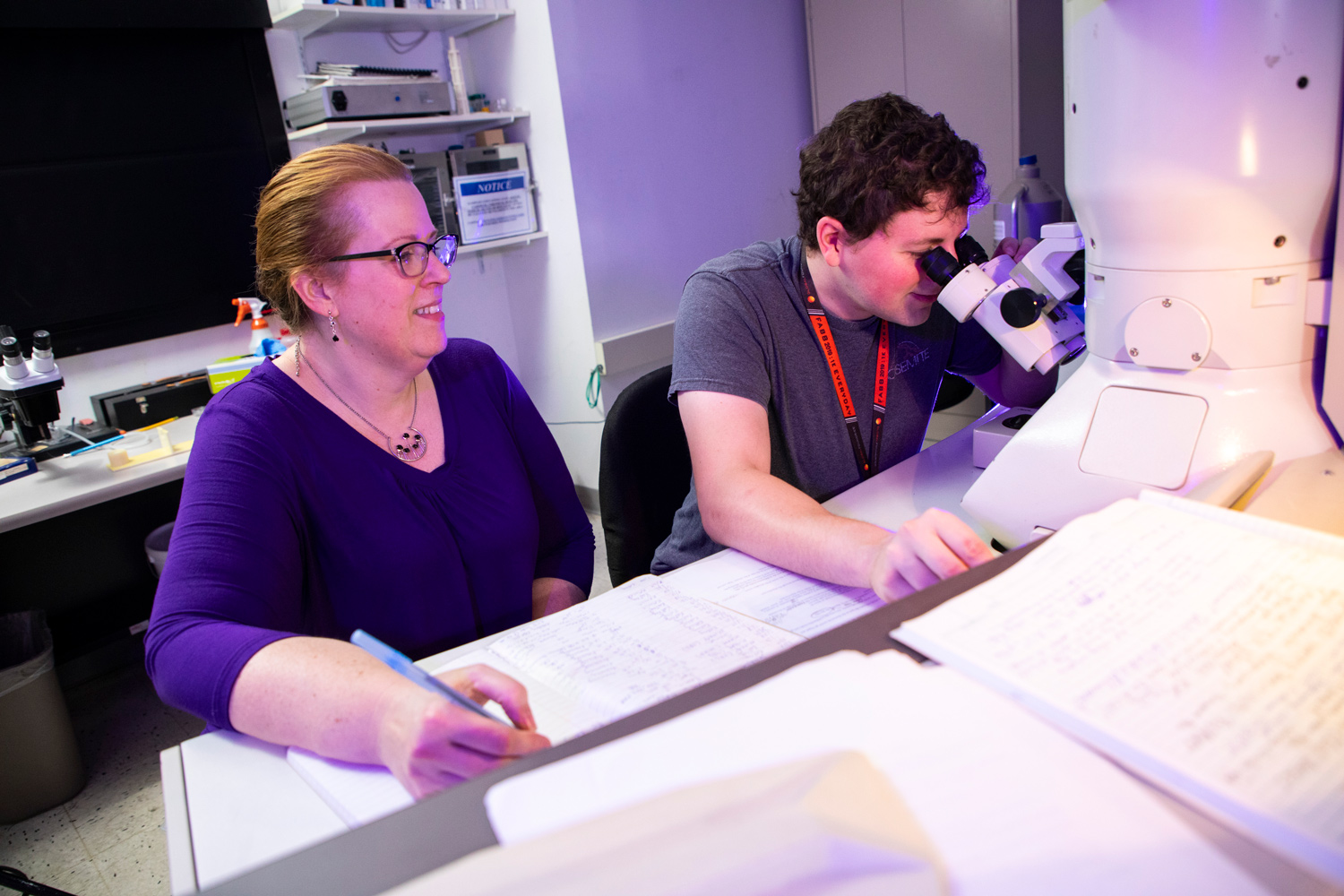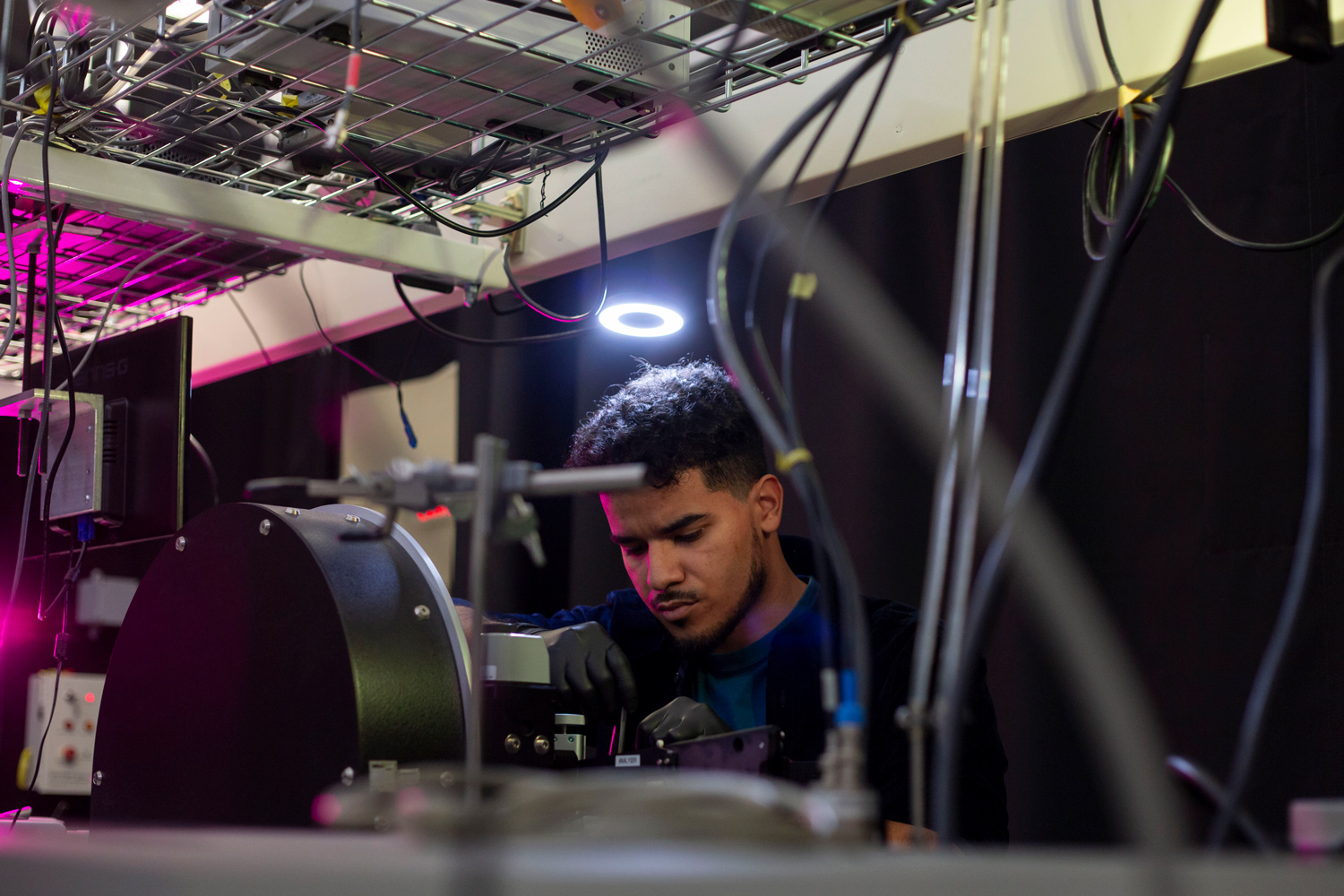The nanobioscience PhD program integrates the fundamental principles of physics, chemistry, computer science, biology, mathematics and engineering with the cross-cutting fields of nanosciences, nanoengineering and nanotechnology.
Through coursework and research, you’ll develop fundamental knowledge in the design and manipulation of nanomaterials and nanofabricated systems towards biological applications, including metals, semiconductors, polymers, and chemical and biological materials. This includes the integration, processing, testing and qualification of these materials in integrated micro- and nanosystems, sensors, and integrated optics.
Degree Requirements
You’ll complete either 36 or 60 credits to earn your PhD in Nanobioscience at UAlbany, depending whether you already hold an appropriate master’s or bachelor’s degree upon acceptance to the program.
All students enroll in a sequence of four foundational courses that provide the core competencies necessary for success in nanoscale engineering and science fields. You’ll earn the rest of your credits through relevant coursework, seminars, and PhD dissertation research.
After your first year in the program, you will embark on a preliminary program of study with your advisor to choose an area of concentration and coursework to satisfy it.





